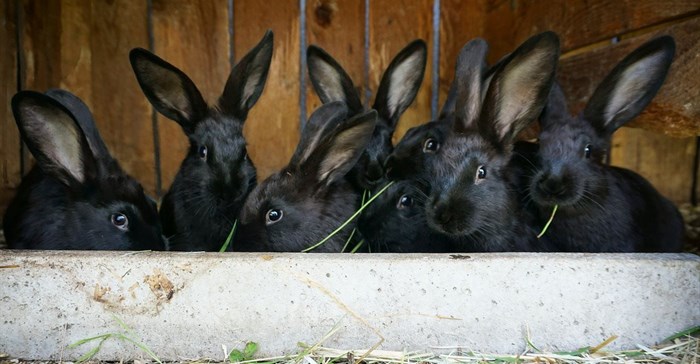According to Pertunia Setumo, agricultural economist at FNB Business, not only does rabbit farming have lower costs of entry, it is less demanding, easy to maintain, requires less land and resources. "For a small-scale unit of 150 does and 30 bucks, a start-up investment is estimated at R35,000. This would cover setup costs such as breeding stock, feed, labour and other variable and fixed inputs, for the first month. This excludes structures (which require capital investment depending on the size of the operation) and adhoc fixed costs."
A kit will require about 50g of feed per day, with a 40kg pallet going for R243/kg. An estimation of 9.2kg is required for the life cycle of the rabbit (51 days to reach a marketable weight of 2.2kg). The price per head is estimated at R55.
Domestically, consumption of rabbit meat is currently below 20% compared to over 80% for the export market.
Although rabbit meat is considered to have the lowest calorie meat per serving and a high protein concentration compared to beef, lamb, chicken, fish, and pork, it is still a relatively unpopular dish in South Africa.
Setumo says that "locally, the retail market is still immature owing to a lack of knowledge in terms of nutritional benefits and accessibility. The meat is available in gourmet restaurants, wildlife butcheries, informal markets and some selected retailers."
China, EU markets
Globally, China is currently the leading producer and consumer of rabbit meat with about 60% of the global production coming from the country. The industry has more than doubled since 2013, led by strong local consumption. According to the Food and Agriculture Organisation of the United Nations (FAO), an estimated 1.2 bn rabbits are slaughtered annually and growth is most notable in China. The EU follows closely, contributing about 10% of the global output in 2017.
In the African continent, rabbit meat is considered traditional food in certain countries such as Egypt and the Sudan.
Setumo adds: "Unlike other sub-sectors of agriculture where access to markets is considered one of the biggest challenges for small scale farmers, rabbit farmers have an opportunity to partner with established companies, such as Coniglio, which is the major off-taker supplier to both the local international markets. The company supports its contracted rabbit farmers in the country with set up equipment and specialist training.
"There are many other commercial farmers who are willing to mentor and assist small-scale farmers to get their operations off the ground. Farmers who are starting out are also advised to partner with various rabbit farming clubs and associations across the country."







